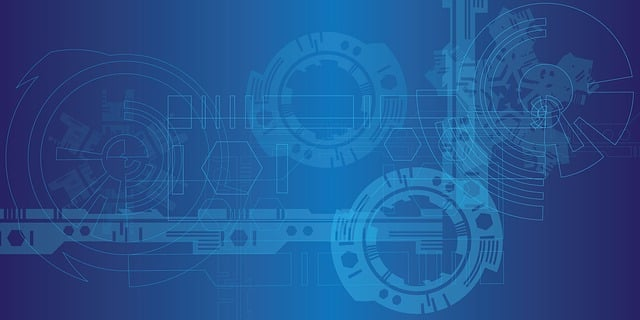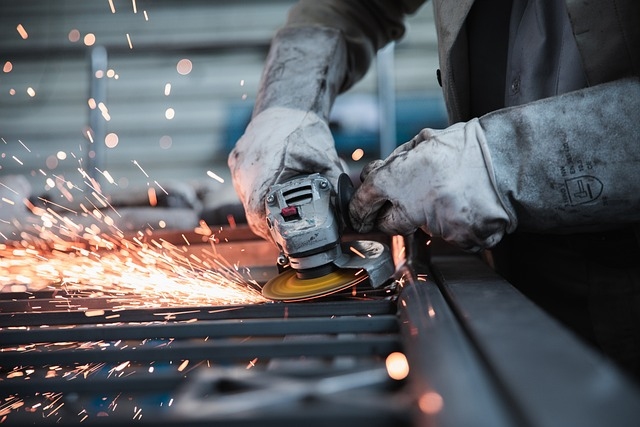Fasteners
The Future of Fasteners Technology
World Impact
Fasteners, though often overlooked, play a critical role in the construction, functionality, and sustainability of the modern world. Their impact extends across various industries, influencing the way we build, manufacture, and maintain everything from everyday household items to complex industrial systems. Here’s a detailed look at how fasteners impact our world:
1. Infrastructure and Construction
Building Stability and Safety
In the construction industry, fasteners are indispensable. From bolts and nuts securing steel beams in skyscrapers to screws and anchors holding together residential homes, these components ensure structural integrity. Imagine a high-rise building: fasteners play a crucial role in holding together the steel framework that supports the entire structure. In bridges, specially designed fasteners are used to handle the immense stress and environmental factors, such as temperature fluctuations and vibrations from traffic. These fasteners are engineered to prevent loosening over time, ensuring long-term stability and safety.
Example Summary:
- Skyscrapers: High-strength bolts and nuts are used in steel frameworks to maintain the integrity of tall buildings. These examples illustrate how specific fasteners are crucial in ensuring the stability and safety of skyscrapers.
- Bridges: Specialised fasteners ensure that bridge components remain secure under the stress of heavy traffic and environmental conditions.
2. Manufacturing and Production
Efficiency and Precision
In manufacturing, fasteners enable the efficient assembly of products. From automobiles to appliances, fasteners provide a reliable means of joining components with precision, ensuring products function correctly and safely. The automotive landscape relies heavily on fasteners to assemble vehicles. Cars, trucks, and motorcycles are held together by thousands of fasteners that secure everything from engine components to interior panels. In a car engine, high-strength bolts and studs are used to keep the engine block and cylinder head intact under extreme temperatures and pressures. Fasteners also play a critical role in the safety features of vehicles. For instance, seatbelts and airbags are attached using fasteners designed to withstand high impact forces during collisions, providing critical protection for passengers.
Example Summary:
- Automotive: Examples of fasteners in the automotive sector include their use in assembling engines, transmissions, and body panels, contributing to vehicle safety and performance.
- Electronics: Tiny screws and clips secure delicate components in smartphones, laptops, and other gadgets, ensuring durability and functionality.


3. Technological Advancements
Innovation and Adaptability
The development of advanced fasteners has enabled technological innovations in various fields. Smart fasteners, for instance, incorporate sensors to provide real-time data on structural integrity, facilitating proactive maintenance and enhancing safety. In aerospace, the precision and reliability of fasteners are paramount. Airplanes are subjected to extreme forces during flight, requiring fasteners that can withstand these stresses without failing. Titanium fasteners are often used due to their high strength-to-weight ratio and resistance to corrosion. These fasteners secure essential components such as the wings, fuselage, and landing gear. Any failure in these fasteners could lead to catastrophic consequences, highlighting their crucial role in ensuring the safety and performance of aircraft.
Example Summary:
- Aerospace: Advanced fasteners are designed to withstand extreme temperatures and pressures, ensuring the safety and reliability of aircraft. Examples include fasteners used in the construction of commercial jets and space shuttles.
- Smart Buildings: Smart fasteners monitor structural health, providing data that helps in maintaining the safety and efficiency of modern buildings. Examples of these applications can be found in high-rise buildings and smart homes.
4. Sustainability and Environmental Impact
Reducing Waste and Promoting Reusability
Fasteners contribute to sustainability by enabling the reuse and recycling of components. Unlike permanent joining methods like welding, fasteners allow for the disassembly and reassembly of parts, reducing waste and promoting a circular economy.
Example Summary:
- Renewable Energy: Examples of fasteners in renewable energy include their use in the assembly of wind turbines and solar panels, facilitating maintenance and eventual recycling.
- Green Building: Sustainable construction practices often incorporate reusable fasteners, reducing the environmental footprint of buildings.


5. Everyday Convenience and Reliability
Enhancing Daily Life
Fasteners are integral to the everyday items we rely on, from furniture and appliances to clothing and electronics. They provide the reliability and functionality that ensure these products meet our needs effectively and safely. Fasteners are vital in electronics, where miniaturization and precision are key. Smartphones, laptops, and other consumer electronics contain numerous tiny fasteners that hold internal components together while allowing for easy disassembly and repair. For example, the screws used in smartphones are designed to be small yet strong, maintaining the device’s structural integrity without interfering with its slim design. These fasteners must also be made from non-magnetic materials to avoid affecting the electronic functions of the devices.
In the medical field, fasteners contribute to the reliability and safety of medical devices. Surgical instruments, implants, and diagnostic equipment are assembled using fasteners that meet stringent hygiene and biocompatibility standards. For instance, orthopaedic implants like joint replacements use screws and plates made from biocompatible materials such as titanium or stainless steel. These fasteners must remain secure within the human body, often for many years, without causing adverse reactions.
Example Summary:
- Furniture: Examples of fasteners in furniture include screws, nails, and brackets, which hold pieces together, providing stability and durability.
- Clothing: Zippers, buttons, and snaps are types of fasteners that offer functionality and convenience in our clothing.
- Electronics: Smartphones, laptops and other electronics have meticulous fasteners inside of them.
- Medical: Surgical instruments, implants and diagnostics equipment that are used everyday to save lives are assembled with fasteners.
6. Economic Impact
Driving Industrial Growth
The fastener industry itself is a significant economic contributor, driving growth in both manufacturing and trade on a global scale. The distribution of fasteners create a ripple effect that supports numerous jobs, from the skilled workers who manufacture the fasteners to the logistics personnel who ensure their timely delivery to markets. This industry stimulates economic activity across various sectors, including construction, automotive, aerospace, and consumer goods, as these industries rely heavily on fasteners for their products and infrastructure. Moreover, the export and import of fasteners contribute to international trade, further enhancing economic interdependence and growth. By providing essential components for countless applications, the fastener industry helps to sustain and advance economic development worldwide.
Example Summary:
- Global Trade: Fasteners are a key component of global trade, with numerous examples illustrating their essential role in various industries worldwide. Countries import and export millions of dollars’ worth of fasteners annually, underscoring their critical role in manufacturing, construction, and infrastructure projects across the globe. This robust international trade in fasteners highlights their importance in ensuring the seamless operation and development of numerous sectors.
- Job Creation: This is a significant driver of employment, supporting numerous jobs across manufacturing, distribution, and retail sectors. This widespread job support contributes to economic stability by providing steady work opportunities and fostering economic growth in communities.


Food For Thought
Fasteners may be small components, but their impact on our world is immense. They are the unseen heroes that hold together our buildings, vehicles, gadgets, and countless other items we depend on daily. Their role in ensuring structural integrity, facilitating technological advancements, promoting sustainability, and driving economic growth underscores their importance in modern society. As we continue to innovate and build for the future, the significance of fasteners will only grow, highlighting their vital role in shaping a safer, more efficient, and sustainable world.


Key Considerations:
- Precision Engineering: Ensures that fasteners meet the exact requirements of miniature electronic devices, providing a secure fit without damaging sensitive components.
- Material Selection: The use of lightweight, non-magnetic, and corrosion-resistant materials is crucial to avoid interference with electronic functions and ensure longevity.
- Assembly Techniques: Innovative assembly methods, such as automated micro-assembly processes, are employed to ensure secure fastening without compromising the integrity of the electronic device.
The miniaturization trend is particularly evident in the consumer electronics and medical device industries, where devices are becoming increasingly compact and sophisticated. Fasteners that meet the stringent demands of these applications are essential for the continued advancement of technology in these sectors.
With loyalty in mind, the slightest mistake could cause a brand to lose their long-term customers let alone, a faulty product. Having brands callback products have allowed competitors to pivot and take advantage of the market. We can assume that in the landscape and hyper-competitive nature of tech, shortcuts could lead to tremendous losses.


How S.H. Chooi Fasteners Can Provide a Comprehensive Customization Plan
Efficient Customisation Beyond The Assembly Line
At S.H. Chooi Fasteners, we pride ourselves on delivering efficient customised products tailored precisely to your specifications. We work closely with our clients, from initial blueprints to final production, ensuring all secondary operations are handled seamlessly. Our comprehensive range of services includes:
- Assembly: Expertly putting together various components to form a complete fastener involves precise alignment and secure fitting of parts to ensure the fastener’s functionality and durability. This process may include the integration of multiple materials and intricate designs, requiring skilled technicians and advanced machinery to achieve optimal results.
- Grinding: Precision grinding to meet exact dimensional and surface finish requirements involves using high-precision grinding machines that can produce components with tight tolerances. This process is crucial for ensuring that fasteners fit perfectly in their intended applications, enhancing performance and reliability.
- Lapping: Achieving high-precision flat surfaces and smooth finishes involves a meticulous process where abrasive slurry and specialised equipment are used to create surfaces with exceptionally low roughness. This technique is essential for fasteners that require tight sealing or smooth movement within assemblies.
- Polishing: Improving surface finish for aesthetic or functional purposes involves using various polishing techniques and compounds to achieve a mirror-like finish or desired texture. Polished fasteners not only look better but can also reduce friction and wear in mechanical applications.
- Tapping: Creating internal threads with precision involves using specialised taps and threading tools to cut threads inside holes, ensuring compatibility with mating bolts or screws. This process requires exact control to produce threads that meet specific standards and tolerances.
- Counterboring: Preparing holes to accommodate bolt heads or nuts involves enlarging a portion of a hole to a specific diameter and depth. This ensures that fastener heads sit flush or below the surface of the material, providing a clean and secure fit for structural or aesthetic purposes.
- Cutoffs: Cutting fasteners to desired lengths involves precision cutting techniques that ensure each fastener is the correct length for its application. This process is vital for maintaining the integrity and performance of fasteners in various assemblies.
- Welding: Providing strong and reliable welds for various applications involves using advanced welding techniques to join fastener components or attach fasteners to other structures. This process ensures that the welded joints can withstand high loads and stresses.
- Deburring: Removing sharp edges and burrs for safe and smooth finishes involves using various deburring tools and techniques to eliminate imperfections that could cause injury or interfere with assembly. This process ensures that fasteners are safe to handle and fit properly in their intended applications.
- Part Identification Stamping: Marking parts for easy identification involves using stamping tools to imprint information such as part numbers, manufacturer logos, or other identifiers onto fasteners. This helps in tracking and managing fasteners throughout their lifecycle.
- Nylon Patching: Adding nylon patches to threads for added security involves applying nylon material to threaded fasteners to enhance their resistance to vibration and loosening. This process provides an additional layer of security in critical applications.
- Reaming: Precisely enlarging holes to exact dimensions involves using reamers to refine the size and finish of pre-drilled holes, ensuring a perfect fit for fasteners. This process is crucial for maintaining tight tolerances and ensuring reliable assembly.
- Fabricating: Custom fabrication to meet unique design requirements involves creating fasteners with specific shapes, sizes, and features that are tailored to particular applications. This process can include a variety of manufacturing techniques to produce fasteners that meet exact specifications.
- Internal and External Broaching: Cutting keyways, splines, and other complex shapes involves using broaching tools to create intricate internal or external profiles on fastener components. This process is essential for producing fasteners that require specialised features for mechanical interlocking or alignment.
- Drilling/Milling/Slotting/Thread Rolling/Cutting: Versatile machining services to create precise fastener features involve using various machining techniques to produce threads, slots, and other features with high precision. These processes ensure that fasteners meet specific functional requirements and fit seamlessly in their applications.
- Sorting: Ensuring only the highest quality fasteners reach our customers involves rigorous inspection and sorting processes to identify and eliminate defective or non-conforming fasteners. This ensures that customers receive fasteners that meet their quality standards and perform reliably.
- Thread Locking/Chasing: Enhancing thread integrity and ensuring smooth assembly involves applying thread locking compounds or using chasing tools to improve the quality and security of threaded connections. This process helps prevent loosening due to vibration and ensures that fasteners maintain their integrity over time.
Our dedicated customer service officers are always available to address your questions and resolve any issues promptly and effectively. You can reach out to us via our customer service live chat, fill out our question form, or send us an email. We’re committed to meeting all your industrial fastener needs with the highest standards of quality and service.
Trust S.H. Chooi Fasteners with your industrial needs! Contact us today at +604 – 261 3001.


Why Local? (A Conclusion)
Having a local brand like S.H. Chooi Fasteners manufacture your fasteners offers numerous advantages. Local production ensures faster turnaround times and greater flexibility in meeting urgent demands, which is crucial for maintaining project timelines and minimising downtime.
Moreover, working with us facilitates better communication and collaboration, allowing for customised solutions tailored to specific needs and standards. This proximity also reduces transportation costs and the carbon footprint associated with shipping, contributing to more sustainable operations. Additionally, working with local business strengthens the community’s economy, creating jobs and fostering local expertise and innovation. With S.H. Chooi’s commitment to quality and comprehensive customisation capabilities, customers are assured of receiving high-performance fasteners that meet their exact specifications, enhancing the reliability and efficiency of their applications.
Conclusion: Embracing the Future of Fastener Technology
The future of fastener technology is marked by remarkable innovations that promise to enhance performance, sustainability, and safety across various industries. From smart fasteners that offer real-time monitoring to advanced materials and additive manufacturing, these trends are driving the evolution of an often-overlooked but essential component of modern engineering.
As industries continue to push the boundaries of what is possible, fasteners will play a crucial role in supporting new advancements. By embracing these innovations, manufacturers and engineers can ensure that their structures and devices are built to last, meet rigorous standards, and contribute to a more sustainable future. The ongoing development of fastener technology is a testament to the importance of these small but mighty components in the grand scheme of technological progress.
Fasteners, often considered the backbone of construction and manufacturing, are undergoing a transformative evolution that promises to revolutionise various industries. These small but crucial components ensure stability, safety, and efficiency in countless structures and devices. This article delves into the latest trends and innovations in fastener technology, highlighting how these advancements are poised to shape the future.
Contact us now at S.H. Chooi Fasteners with your industrial needs! Call us today at +604 – 261 3001.



